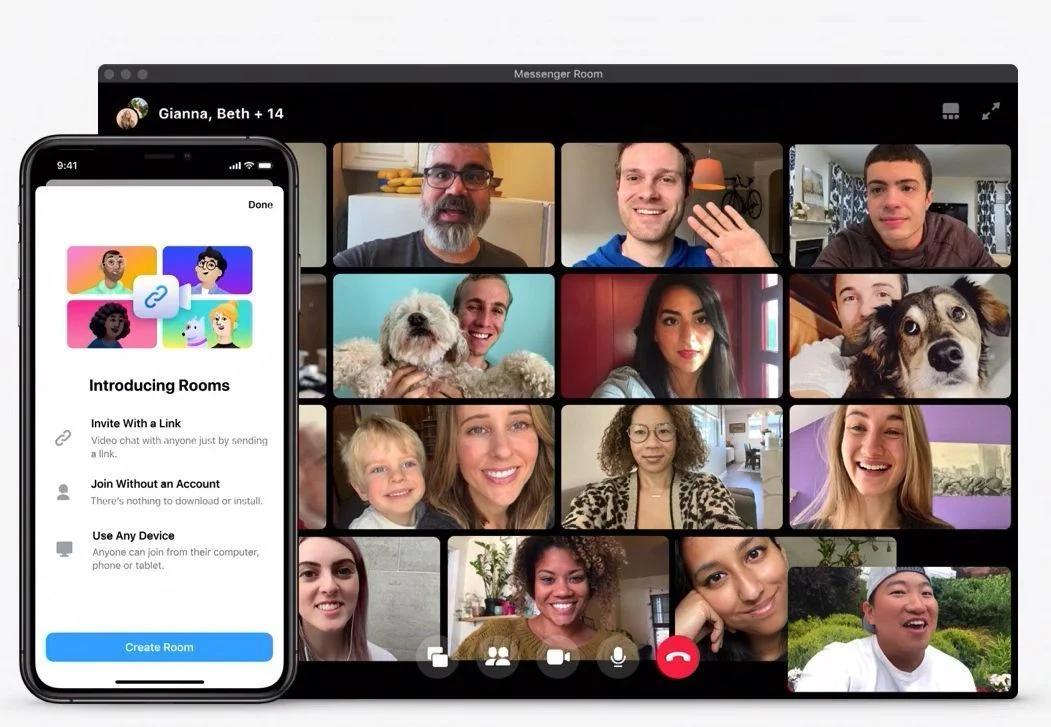Cyber Safety

Should you be using Messenger Rooms instead of Zoom?
Earlier this month, Facebook rolled out a new group chat feature created specifically with “privacy in mind.” But what safety guarantees does Messenger Rooms really offer - and how, if at all, is it superior to Zoom?
Messenger Rooms has been called a “Zoom clone” - and with good reason. Just like its brand-leading but embattled competitor, which has been battered by privacy complaints during the COVID-19 crisis, Rooms is a free, simple-to-use platform for hosting group video- and audio-chat.
But what sets Rooms apart? Is it actually a better option?
What privacy controls do users get?
In the words of a Facebook announcement, “The default privacy settings were designed to be consistent with what you’d expect for where you create a room.”
Um … what?
Drilling down a bit, here are some of the controls Rooms offers:
- The user who creates the Room controls the settings for joining, link-sharing and other features. Rooms created through a Facebook Group are open by default to group members.
- Rooms can be “locked” or kept open once a call begins.
- The Room creator can remove unwanted participants - and participants can leave at any time.
- Anyone you’ve blocked from Facebook or Messenger is automatically blocked from any
- Room you create.
- Room activity that violates Facebook’s Community Standards can be reported.
What about surveillance?
Here’s where it gets tricky. Facebook assures users that Rooms has been created “with privacy in mind … we don’t watch or listen to your audio or video calls.”
That sounds pretty straightforward, but let’s take a closer look.
Because the fact is, the company has declined to address the issue of metadata from Rooms calls - specifically whether it will retain it or share it, and with whom.
What is metadata?
Literally, metadata means “data about data.” In practical terms, that could mean usernames and profile info of the people in your Room, the date and time of calls, the device used, and the location of participants.
That may not sound particularly worrying - but with the help of machine-learning, metadata can be used to identify, track and target individuals with surgical accuracy.
So while Facebook will do no direct, human-to-human eavesdropping on Rooms, machine eavesdropping remains an open option.
In a nutshell, “it’s impossible to determine exactly what information will be collected about you and your life if you decide to use," The Intercept concluded.
“As comforting as ‘we won’t actively spy on you’ may be, the fact remains that 'the name of the room and who’s in it' can be profoundly personal and as revealing as the contents of any conversation.”
So is Rooms safer than Zoom?
During the pandemic-led Zoom boom, the company came under attack from privacy watchdogs for a range of security loopholes - from “Zoom-bombing” by randoms to lax privacy policies that gave developers free rein to collect and use data - that sent it scurrying into damage control mode.
Many, but not all, of the numerous security issues plaguing Zoom have now been addressed.
But is Messenger Rooms - which positions itself more as a personal chat platform than a workplace solution - a better bet?
To date, Facebook has offered no convincing guarantee that Rooms will afford users more privacy and better security than Zoom.
“Those spooked by Zoom’s dismal privacy record and hoping for an unambiguously superior alternative will find no such thing,” The Intercept’s in-depth analysis has concluded.

